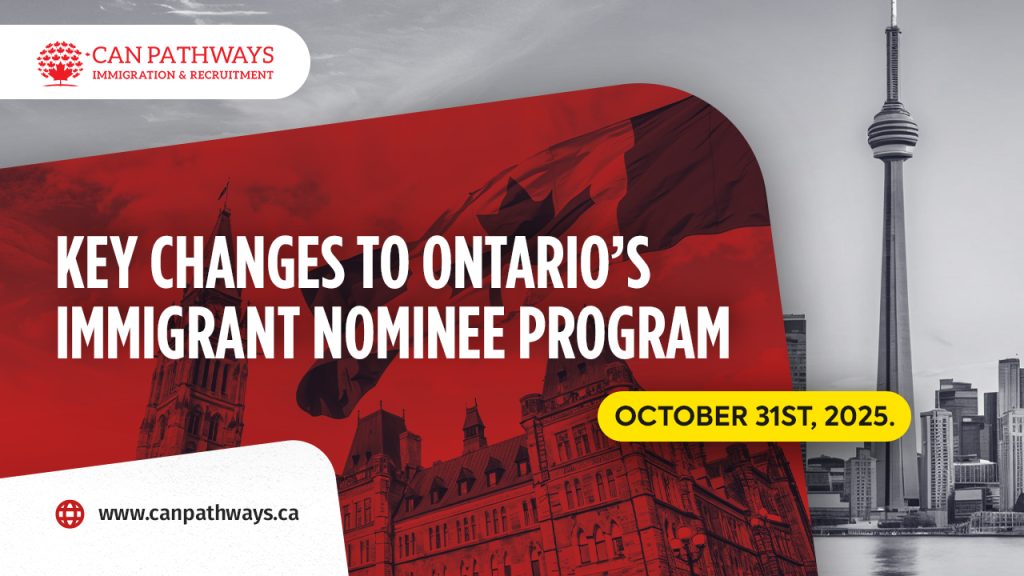📢 ANNOUNCEMENT – October 31
Recent Changes to the Ontario Immigrant Nominee Program (OINP)
The Ontario Immigrant Nominee Program (OINP) has announced updates to its governing regulations, expanding the list of factors that may be considered when deciding whether to return an application before a nomination is issued.
This change builds upon previous amendments introduced in the July 2nd program update and allows the OINP to better align with current labour market priorities by focusing on applications that meet Ontario’s evolving economic and employment needs.
If an application is returned, applicants and/or their representatives will be notified, and the full application fee will be refunded.
These changes are now in effect. The amended regulations can be accessed on Ontario’s e-Laws website under:
Ontario Regulation 423/17 – Approvals under the Ontario Immigrant Nominee Program and Other Matters.
⚖️ Updated Regulation: Suspension and Return of Applications
Under the current regulation, the Director may suspend or return applications (and refund fees) for which a decision has not yet been made, based on any or all of the following factors:
- The number of nomination allocations provided by the Government of Canada for the calendar year.
- The volume of pending applications not yet decided.
- The number of approvals issued compared to the annual target.
- Whether the Government of Canada is currently accepting applications for permanent residence from nominees.
- Any systemic compliance or enforcement concerns.
- Policy priorities communicated by the Government of Canada or Ontario’s Minister regarding the OINP.
- The unemployment rate in Ontario or specific regions.
- Current or anticipated labour market needs in Ontario or specific regions.
- The availability or cost of housing in Ontario or specific regions.
- The province’s capacity to fund and ensure access to health and social services.
- Whether the applicant is legally authorized to work in Canada.
- Whether the applicant is currently employed in Ontario.
- Whether the applicant has a valid job offer approved by the Director under the Act.
- The applicant’s language proficiency in English or French.
- The applicant’s employment and wage history.
- The applicant’s highest level of education.
- The applicant’s Canadian work experience or education.





